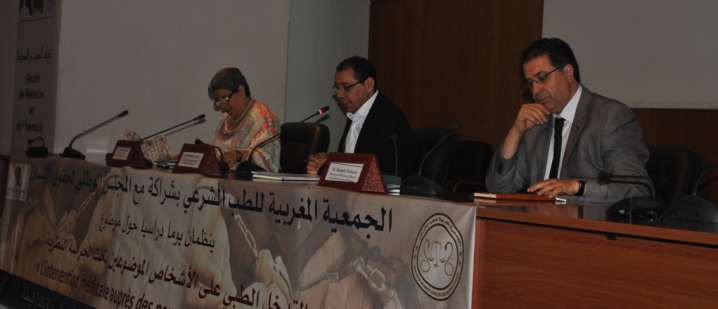Workshop on medical intervention in police custody
The CNDH held on June 14, 2014 in Casablanca a workshop on medical intervention while in police custody. The workshop aimed to enrich debate on a Bill amending and completing the Criminal Procedure Code, in aspects related to police custody. It also aimed to launch reflection on a Moroccan organization model of forensic activities.
The participants discussed several relevant topics: human rights based approach and medical intervention while persons in police custody; legal framework and ethical and professional standards of medical intervention while people are in police custody; and investigation of torture and ill-treatment allegations in light of international human rights law. They also discussed how to document and asses physical and psychological evidence of torture and ill-treatment.
Several recommendations were made by the participants, including the following:
- Considering medical intervention as a right and a basic guarantee for each person in police custody;
- Implementing this right, as soon as a person is put in police custody. Authorities and investigation and law enforcement officers shall facilitate the implementation of this right;
- Medical intervention must be mandatory in the following cases:
- when the person put in police custody is a minor;
- when there are signs of violence on the person put in police custody;
- when the person is arrested for drug use or trafficking;
- and if the person put in police custody or a relative ask for medical intervention;
- Doctors, involved in medical intervention while a person in police custody, must be appointment by a court order. They should, at least, determine if the person can be put in police custody, according to his/her health situation. They also examine and document any possible injuries;
- Ensuring effective regulation of forensic activities, providing round-the-clock service (24/7) in medical forensic units, by forensic doctors or other trained emergency doctors or doctors serving in public hospitals, enlisted in the registers of the courts of the first instance or the courts of appeal.























